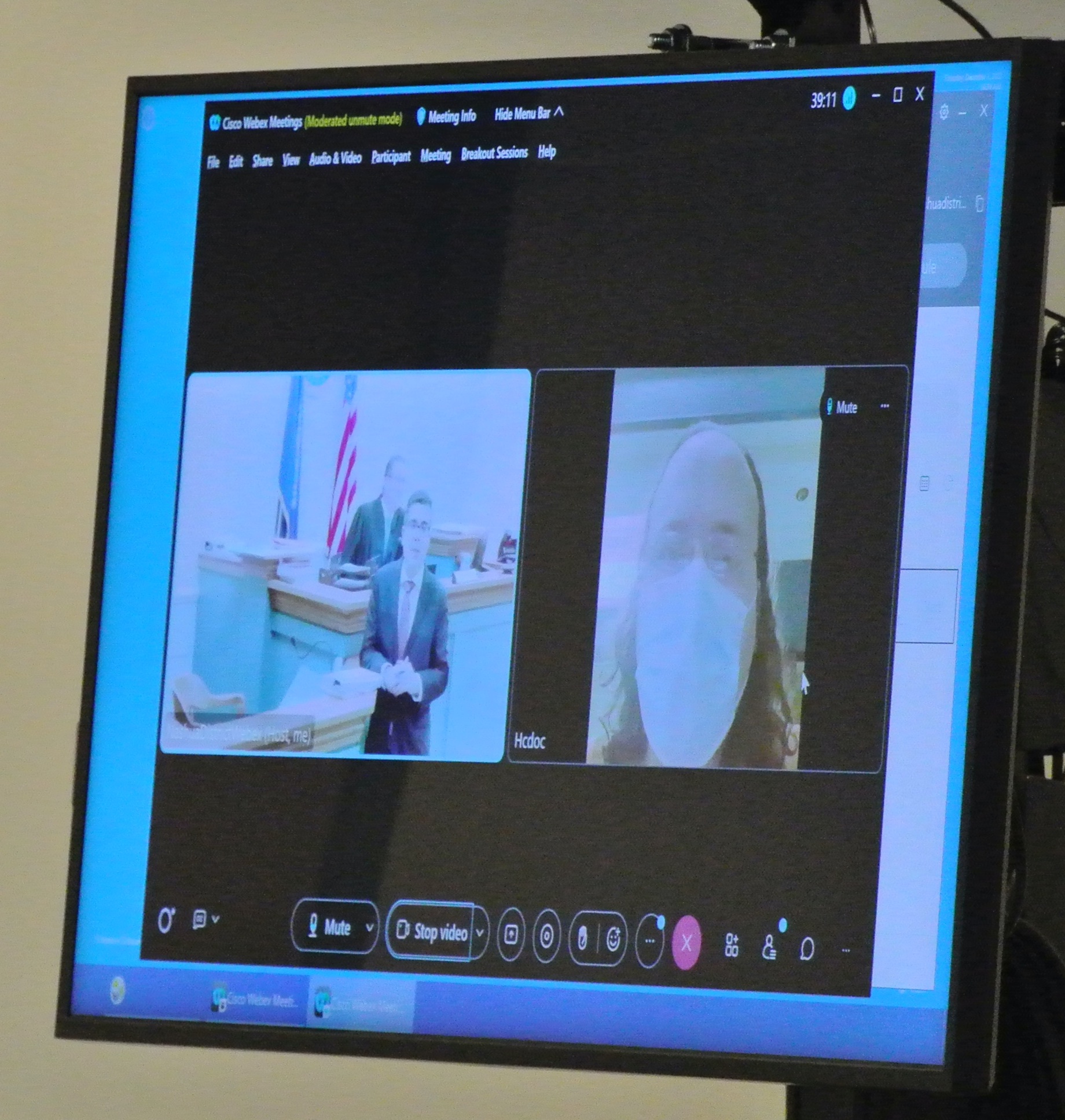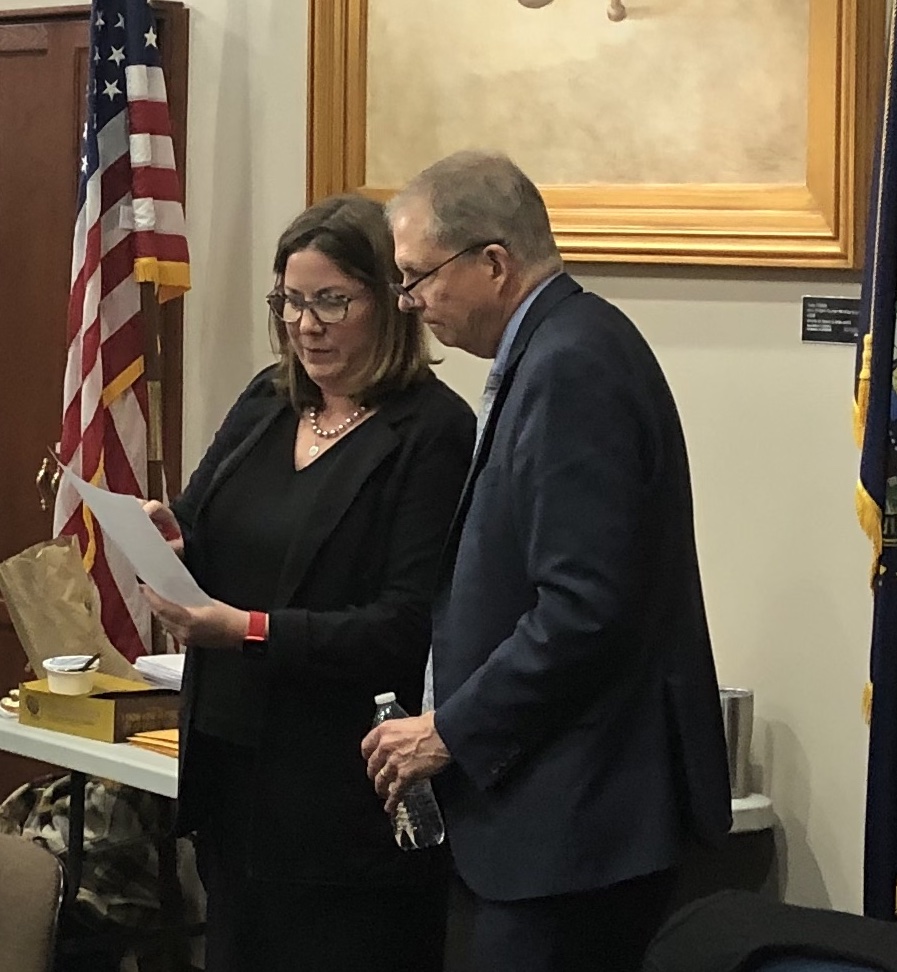Guy Fawkes Day could be coming early to Concord as a contingent of House Democrats is reportedly scheming to blow up the proposed budget in a fight over Medicaid expansion.
Multiple sources tell NHJournal Democrats are toying with some radical plans, including the possibility of using a potential future majority in the evenly-split House to “vacate the speaker’s chair,” giving Speaker Sherman Packard (R-Londonderry) the boot.
Another idea: Strip Medicaid expansion from the House budget by voting on it as a standalone bill, then leave the House GOP to attempt to pass a budget — and fail — without Democratic votes. But since the Medicaid expansion bill has already been retained in committee, the Democrats would have to override the committee process and vote to bring it to the House floor.
The conspiracy talk comes at a time of heightened tension in the budget negotiations between legislators and Gov. Chris Sununu, with one source saying no one knows what is going to happen next.
“If they do any of this, it is total Armageddon,” one GOP House member told NHJournal.
Senate President Jeb Bradley (R-Wolfeboro) shares a similar view, calling the talk he has heard from the Democratic side of the aisle “Washington-style politics at its worst.”
As for a possible Democratic attempt to pull Medicaid expansion out of budget for its own vote, “I think it’s a very dangerous game,” Bradley said during a podcast interview with NHJournal. “It puts at risk the budget and Medicaid expansion at risk.”
Bradley took the lead in the Senate, spearheading SB 263, the Medicaid expansion bill, which extends the state’s Granite Advantage health insurance program. While low-income families qualify for traditional Medicaid, the Granite Advantage program makes Medicaid available to working families who earn too much for Medicaid but don’t have access to affordable health insurance through their employers. And 90 percent of the funding comes from federal dollars.
“My responsibility as I see it is to get the job done for the 50,000 to 60,000 people now depending on Medicaid expansion,” Bradley said. “To say nothing of the providers, the hospitals, the business community, all of the people that have gotten behind this coalition effort for the last nine years.
“Our responsibility, as adults, is to get the job done.”
The original proposal would have permanently expanded health coverage, while some House GOP members wanted to see just a two-year expansion. Bradley has agreed to a compromise plan that extends the benefit for seven years. That is complicated by the fact the budget, HB2, includes a two-year extension to Medicaid.
Packard is seen as a key opponent to the permanent expansion. Now, sources tell NHJournal some Democrats plan to yank Medicaid expansion away from the House Finance Committee and hold a floor vote on a permanent expansion. At the same time, those Democrats are also gearing up to push Packard out of the speaker’s chair.
House Clerk Paul Smith said motions to vacate the speaker’s chair are rare and typically unsuccessful. Any vote to remove Packard would require “50 percent plus one” of the entire body — not just those present. There are 196 Democrats in the House. With several vacancies, the current House membership is 396, meaning Democrats need 199 votes.
House Finance Committee member Rep. Peter Leishman (D-Peterborough) has heard the rumblings about Medicaid expansion, but he said the House conspirators are all talk. He noted that the Finance Committee voted Thursday to retain the bill, locking it into the committee.
“If the bill’s not reported out, they can’t take it away from the Finance Committee,” Leishman added.
But other House sources said an obscure and rarely-used move could allow Democrats to override the committee’s vote to retain. Smith said it would be a highly unusual move.
“Does it usually happen that the House withdraws a bill from committee? No, not usually,” Smith said.
House Majority Leader Jason Osborne (R-Auburn) conceded that, given the tight margins in the House and attendance issues, it’s very possible Democrats could again find themselves with a majority on the floor. If they do and choose to abandon the norms and traditions of the House, they could wreak havoc.
“But the real result would be total Republican unity,” Osborne added. “These things Democrats are talking about would completely unify my caucus.”
In fact, Deputy Speaker Steve Smith now says House leadership is on board with Bradley’s proposed Medicaid expansion deal.
“We’ve heard from the business community, the health care community, and people across New Hampshire about the importance of reauthorizing Medicaid expansion,” Smith said in a statement. “We all agree that the program needs to be reauthorized, and we’ve had a productive conversation about the appropriate length of time for a sunset provision.
“A seven-year extension of the Granite Advantage Healthcare Program makes logical and fiscal sense. New Hampshire gets the financial benefit of a full contract period, a continued drop in uncompensated care costs – which is a hidden tax, and it stabilizes the market allowing for more competition to help further drive down health care costs in our state. House Republican leadership fully supports the budget compromise of seven years. Let’s get it done,” Smith said.
Regardless of how the Medicaid vote goes, former House Speaker Rep. Steve Shurtleff (D-Penacook) said an attempt to force a vote, or worse, depose Packard, is a mistake.
“What we don’t need right now is this kind of gamesmanship,” Shurtleff said. “There’s no need for these kinds of fights.”
Too many people in the state rely on the budget passing, Shurtleff added, and delaying that makes those people the victims in an unnecessary political fight. “The budget is too important to too many people,” he said.
Then there is the question of motive. Given how relatively apolitical the current budget is — no anti-CRT legislation or late-term abortion bans — why would Democrats contemplate such high-risk actions against it? Particular a budget with hefty pay raises for state workers, who tend to be political allies of the Democratic Party?
Several House Republicans told NHJournal they believe the real target is Sununu. If the governor is tied in an ugly budget battle or trying to corral House chaos, it might stop — or at least slow — his presidential plans.
“Or maybe the Democrats are just [expletives],” one GOP House member said.
Blowing up the budget would hurt state employees, people who need affordable housing, families who need childcare, Granite State communities that need water infrastructure repairs, and every homeowner who needs property tax relief, Bradley said.
“I would just say that is the worst possible case scenario because everything could wind up in the tank,” Bradley said.
Even Democratic stalwart Sen. Lou D’Allesandro (D-Manchester), who voted against the budget last week, wants the spending plan to pass. D’Allesandro and Sen. Cindy Rosenwald (D-Nashua) voted against HB2 in the Senate Finance Committee, saying they want improvements to the final bill before they support it.
“There’s an opportunity to add a couple of things to the budget,” D’Allesandro said.
D’Allesandro wants to see more money for state employee pensions, more money for affordable housing, and no money for northern border security. He said that as long as the bill remains intact and the House remains sane, there will be another opportunity to vote on the budget after more negotiations. That includes negotiating more time for Medicaid expansion.
The specter of a messy fight over Packard’s speakership is a non-starter for D’Allesandro. Packard is doing a solid job leading a closely divided House, he said.
“Sherman Packard was my student when he was in high school. I think the world of Sherman; he’s a fine man.”
Likewise, Leishman does not think Packard should be pushed out.
“I think Sherm’s done a good job trying to hold things together,” Leishman said.


 Protest organizers took up position in front of the State House with a PA system and a table to sign up new volunteers. While organizers brought signs for the crowd, many brought their own. Messages ran the gamut with “This Is Not Normal,” “Hex The Patriarchy,” “Stop The Coup,” “Resist Fascism,” “Abortion Is Healthcare,” “Black Lives Matter,” “Stop The Bro-ligarchy,” and “Fire The Liar,” among others.
Protest organizers took up position in front of the State House with a PA system and a table to sign up new volunteers. While organizers brought signs for the crowd, many brought their own. Messages ran the gamut with “This Is Not Normal,” “Hex The Patriarchy,” “Stop The Coup,” “Resist Fascism,” “Abortion Is Healthcare,” “Black Lives Matter,” “Stop The Bro-ligarchy,” and “Fire The Liar,” among others.




 “A lot of people run from the word ‘satanic,’ but we embrace it,”
“A lot of people run from the word ‘satanic,’ but we embrace it,”









